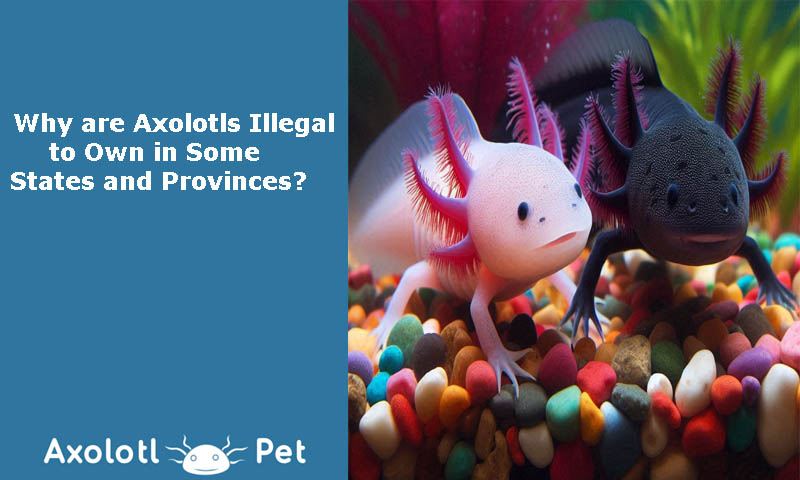Why are Axolotls Illegal to Own in Some States and Provinces?
Axolotls are illegal to own in certain states and provinces due to significant ecological and environmental concerns.
Understanding why axolotls are illegal to own in some states and provinces reveals their ecological importance and the challenges of protecting them, which also connects to their specific care requirements, including their diet, as explained in this post: What is an Axolotl’s Diet?.
As an endangered species native to Mexico, axolotls are protected to preserve their wild populations, and regulations aim to prevent the accidental introduction of these unique animals into non-native ecosystems.
If released, axolotls could become invasive, threatening local wildlife by competing with native species or spreading diseases.
In states like California, where axolotls are banned, their presence is restricted to protect local ecosystems.
Owning one in California can lead to penalties, which may include fines or the seizure of the animal, depending on the circumstances.
New Jersey has similar restrictions, where the risk of non-native species impacting the environment has led to a ban on axolotl ownership.
However, certain states such as Texas and Washington permit axolotl ownership, as long as they are kept as pets and not introduced into the wild.
Texas residents interested in axolotls for sale can legally purchase and own them under these guidelines. In restricted states like California, even purchasing an axolotl is monitored, as regulations prohibit both ownership and sale.
For those wanting to own an axolotl, especially in 2024, it is essential to review and stay updated on local laws, as regulations may vary by state and are subject to change.
Ensuring compliance with these laws not only allows responsible pet ownership but also helps protect the native habitats and species that might otherwise be impacted.
Here’s a breakdown of some of the illegal versus legal states and why these regulations are in place:
Illegal States
- California: Axolotls are considered “detrimental animals” that pose a threat to native salamander species.
- Maine: Similar to California, axolotls are banned to protect local ecosystems.
- New Jersey: The ban aims to prevent potential hybridization with native Tiger Salamander.
- District of Columbia: Axolotls are prohibited due to environmental concerns.
Legal States with Permits Required
- New Mexico: Ownership is allowed with the proper permits.
- Hawaii: Permits are required to own axolotls.
Legal States
Most other states, including Florida, Pennsylvania, Alabama, Arizona, and New York, allow axolotls to be owned without a permit. It’s always a good idea to check local regulations, as cities and counties may have their own rules regarding axolotl ownership.




-0 Comment-